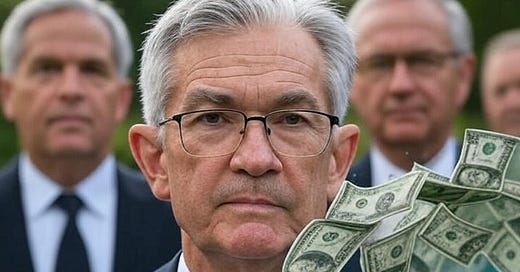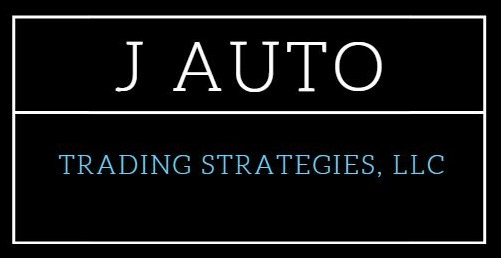Powell’s Defiance: The Fed’s Liquidity Lifeline Sabotages Trump’s Tariff Strategy
JULY 1, 2025
Powell’s Dollar Hose at Sintra
On July 1, 2025, at the ECB Forum in Sintra, Portugal, Federal Reserve Chair Jerome Powell didn’t just step out of line—he declared open defiance against President Donald Trump’s economic and national security agenda. In a live-streamed panel, Powell assured global central bankers that he holds authority over U.S. dollar swap lines and pledged to keep them well-funded to shield foreign economies from the financial fallout of Trump’s tariffs. This wasn’t central bank independence. It was a calculated move to undermine the President’s authority and neuter a trade policy designed to force fair play from nations exploiting U.S. markets.
The President’s Play: Tariffs as Economic Leverage
President Trump’s tariffs are no mere trade tweak—they’re a national security doctrine to reshape global supply chains. By slapping strategic tariffs on imports, Trump aims to pressure foreign nations to stop gaming the U.S. with lopsided trade deals, currency manipulation, and cheap labor dumping. His goal? Reshore manufacturing, secure American jobs, and reduce reliance on adversaries like China. As Trump declared in May 2025, “We will impose strategic tariffs to onshore production and protect American sovereignty.”
This is about leveling the playing field. Countries that flood U.S. markets with subsidized goods while restricting American exports face a choice: negotiate fair trade policies or pay the price. Tariffs are the stick, designed to hurt just enough to force reform. It’s a bold, executive-led strategy rooted in the President’s constitutional authority over trade and national security.
Powell’s Betrayal: A Liquidity Lifeline for Adversaries
Enter Jerome Powell, stage left, with a promise to foreign central bankers that obliterates Trump’s leverage. Speaking alongside the heads of the ECB, Bank of Japan, Bank of England, and Bank of Korea, Powell didn’t just reaffirm the Fed’s swap lines—he boasted of his full authority to keep dollars flowing to their coffers, no matter the tariff storm. These swap lines, which let foreign central banks borrow U.S. dollars against their currencies, are a financial lifeline. They stabilize markets, prop up currencies, and ease the pain of economic shocks—like, say, the higher costs from Trump’s tariffs.
Powell’s message was crystal clear: “Don’t sweat the tariffs. I’ve got your back.” By guaranteeing liquidity, he’s handing foreign economies a cheat code to dodge the economic pressure Trump seeks to apply. Why would China or the EU rush to renegotiate trade deals if the Fed ensures their financial systems stay flush? Why would manufacturers relocate to the U.S. if their home economies can absorb tariff costs with a Fed-backed dollar IV drip? Powell’s pledge doesn’t just weaken Trump’s strategy—it incentivizes foreign nations to double down on unfair trade practices, knowing the Fed will cushion the blow.
A Constitutional Overreach
Let’s call this what it is: institutional insubordination. The Federal Reserve’s mandate is to manage monetary policy—interest rates, inflation, employment—not to conduct shadow foreign policy. Trade and national security fall squarely under the President’s purview, as granted by the Constitution and reinforced by statutes like the Trade Act of 1974. Yet Powell, cloaked in the guise of “independence,” is using the Fed’s dollar hegemony to thwart executive authority. By asserting authority over swap lines, he’s not just protecting global markets—he’s picking a fight with the White House, declaring himself the arbiter of how foreign economies weather U.S. trade actions.
This isn’t about stabilizing markets; it’s about power. Powell’s actions signal to the world that the Fed, not the President, controls the economic consequences of U.S. policy. That’s a dangerous precedent. If the Fed can unilaterally blunt the impact of tariffs, what’s next? Neutralizing sanctions? Undermining defense policies? The swap lines, once a tool of U.S. influence, are now a weapon turned inward, insulating foreign adversaries from the consequences of their trade abuses.
The Stakes: National Security and Economic Sovereignty
Trump’s tariffs are about more than dollars and cents—they’re about reclaiming America’s economic sovereignty. Dependence on foreign manufacturing, especially from nations like China, has left the U.S. vulnerable to supply chain disruptions and geopolitical blackmail. Reshoring production isn’t just an economic win; it’s a national security imperative. Powell’s liquidity lifeline undermines this by letting tariff-targeted nations off the hook. They can keep flooding U.S. markets with cheap goods, hollowing out American industries, while the Fed plays global sugar daddy.
Worse, Powell’s actions weaponize the dollar’s dominance against U.S. interests. The dollar’s status as the world’s reserve currency gives the Fed unparalleled power, but that power is meant to serve America, not subsidize foreign economies gaming our markets. By ensuring liquidity for central banks in countries that exploit trade imbalances, Powell is effectively bankrolling the very practices Trump seeks to end. It’s a perverse irony: the dollar, a symbol of U.S. strength, is being used to prop up the status quo Trump is fighting to dismantle.
The Fed as Shadow State
Powell’s Sintra performance wasn’t a policy disagreement—it was a power grab. By pledging to protect foreign central banks from U.S. tariffs, he’s conducting an independent economic foreign policy, bypassing the elected executive. This is the Fed acting as a shadow state, accountable to no one but itself. The “authority” claim isn’t just bravado; it’s a declaration of sovereignty, as if the Fed’s unelected technocrats outrank the President in shaping America’s global economic strategy.
This isn’t the first time Powell has clashed with Trump—his refusal to cut rates despite Trump’s calls has been a sore point—but Sintra marks a new low. Tariffs are the President’s tool to force fair trade; swap lines are Powell’s tool to let foreign nations dodge accountability. The result? A central banker single-handedly diluting a national security strategy, livestreamed to a global audience.
A Call to Action
This cannot stand. Powell’s defiance isn’t just a slap in the face to Trump—it’s a betrayal of every American worker, manufacturer, and taxpayer who stands to benefit from fairer trade. The Fed’s independence is not a blank check to sabotage executive policy. Congress must step in, hauling Powell before oversight committees to answer for his actions. If swap lines are being used to circumvent tariffs, lawmakers should probe whether the Fed is overstepping its mandate and consider reining in its unchecked power.
President Trump must also act. He’s already called out Powell’s obstruction—now it’s time to escalate. Whether through public pressure, legal challenges, or pushing for reforms to limit the Fed’s global meddling, the White House cannot let this slide. The stakes are too high: economic sovereignty, national security, and the promise of a revitalized American industry hang in the balance.
The Bottom Line
Jerome Powell’s pledge to keep foreign central banks “well-funded” via swap lines isn’t monetary policy—it’s a deliberate move to kneecap President Trump’s tariff strategy. By shielding foreign economies from the pain of tariffs, Powell is enabling the same unfair trade practices Trump seeks to end. This isn’t independence; it’s defiance, dressed up in central bank jargon and broadcast to the world. America deserves better than a Fed that prioritizes global elites over its own people. It’s time to hold Powell accountable and restore the President’s rightful authority to fight for fair trade and a stronger nation.
Share this post. Demand answers. The fight for America’s economic future starts now.
Copyright © 2025 J Auto Trading Strategies, LLC. All rights reserved.
The information and content provided herein are for informational purposes only and do not constitute financial, investment, legal, or other professional advice. The views and opinions expressed are those of the author and do not necessarily reflect the official policy or position of J Auto Trading Strategies, LLC or any other entity. Any reliance you place on such information is strictly at your own risk.
J Auto Trading Strategies, LLC and its affiliates, officers, directors, employees, or agents shall not be liable for any loss or damage, including without limitation, indirect or consequential loss or damage, or any loss or damage whatsoever arising from the use of or reliance on this content. Trading and investment involve significant risks, and past performance is not indicative of future results.
This content is protected by copyright law and may not be reproduced, distributed, or transmitted in any form or by any means, including photocopying, recording, or other electronic or mechanical methods, without the prior written permission of J Auto Trading Strategies, LLC, except as permitted by applicable law.





